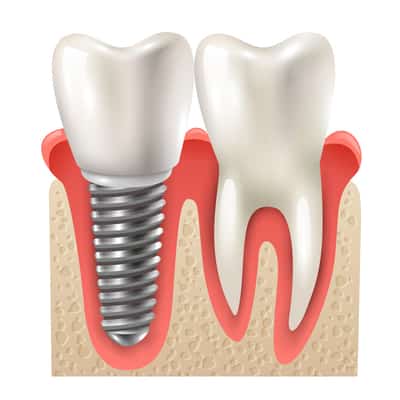
The dental implants cost factors relate to the fact that they involve two stages: a surgical component, where the titanium fixture or rod is placed in your jaw bone under your gum; and a restorative component, where a crown is installed onto this implant fixture.
There is no field of specialisation exclusively covering dental implants, so general dentists, especially experienced ones, can attend to both of these aspects. But the more complicated the case – especially if you have multiple teeth missing, depleted bone, cosmetic challenges, or bite complications – the more strongly advised you are to consult a specialist or seek their second opinion.
For the surgical component, the appropriately qualified specialists are oral & maxillofacial surgeons, oral surgeons and periodontists – all Dental Board registered specialists. And when it comes to the crown, the appropriately qualified specialist is called a prosthodontist. Beware of titles such as implant surgeon, implantologist, or implant dentist; clinicians using these terms don’t necessarily have any more qualifications than your local general dentist.
You often don’t need a referral to see the above specialists for teeth implants. And your scans, X-rays and records can be transferred from your existing dentist so there is no unnecessary doubling up of costs.
To offset the relatively high price of dental implants, a Medicare rebate is available if you choose to see an oral & maxillofacial surgeon.
And if you have any doubts about the specialist registration of a dental practitioner, you can check them out on the official website of the Australian Health Practitioner Regulation Agency (AHPRA) by typing in their first name and family name.
When comparing the price of dental implants quoted by different practitioners, do check the registration level of the practitioners; specialists incur a higher dental implants cost to general dentists, particularly when handling more involved cases.

